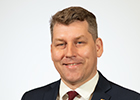Praamipiletite hinnatõus
Istung: XV Riigikogu, IV istungjärk, infotund
Kuupäev: 2024-10-16 16:32
Osalevad Poliitikud:
Sõnavõtte kokku: 12
Koosseis: 15
Päevakorra kestus: 15m
AI kokkuvõtted: 12/12 Sõnavõtud (100.0%)
Analysis: Structured Analysis
Poliitikute Kõneaeg
Poliitikud
Analüüs
Kokkuvõte
Seitsmes küsimus Riigikogu istungil käsitles regionaal- ja põllumajandusminister Piret Hartmanit ning teemat „praamipiletite hinnatõus“. Küsija oli Mart Maastik, kelle sõnavõtus tõsteti esile parvlaevade ühenduste elutähtsus saartele ja mure piletihindade kasvu ning sellega kaasneva mõju üle elule, kaupade liikumisele ja turismile. Samuti toodi välja kuuldused võimalikust järgmisest piletihinnatõusust ning arutleti, kuidas piirata hindu ning kuidas koostöös riigi ja omavalitsustega tagada mõistlik ja jätkusuutlik ühistransport suursaarte vahel. Toodi välja, et parvlaevade ühendus ei ole pelgalt mugavusteenus, vaid oluline tee saartele ligipääsuks ning selle hind mõjutab laiemat piirkondlikku majandust ning kogukondade elukvaliteeti.
Tehtud otsused 1
Ei tehtud konkreetseid otsuseid; toimus arutelu hinnatõusude mõju, ühenduste kvaliteedi parandamise ning kohalike omavalitsuste finantsautonoomia suurendamise üle. Rõhutati, et edasise tegevuse osa hõlmab eelarve- ja rahastusalaseid analüüse ning koostööd omavalitsustega, sealhulgas CO2 vahendite, Norra fondi ja Euroopa Liidu rahastuse kasutamist.
Aktiivseimkõneleja
Kõige aktiivsem esineja oli regionaal- ja põllumajandusminister Piret Hartman (pid = TTBOpGaQCWM). Positsioonina võib teda käsitleda kui "muu" ehk ministrit, kellel on valitsuses juhtiv ja korraldav roll ning kes esindab valitsuse piirkondade ning maapiirkondade arengupoliitikat. Ta pööras tähelepanu nii kasumi piirangutele kui ka ühistranspordi kvaliteedile, riigieelarve vahenditele ning kohalike omavalitsuste finantsautonoomia suurendamisele.
Esimees Lauri Hussar
AI kokkuvõte
Riigikogu liige Mart Maastik küsib regionaal- ja põllumajandusministrile Piret Hartmanile praamipiletite hinnatõusu kohta.

Mart Maastik
Profiileerimine Fraktsiooni mittekuuluvad Riigikogu liikmedAI kokkuvõte
Maastik väljendas muret parvlaevaühenduse hindade tõusu üle Eesti suursaarte vahel, viitas TS Laevade üle miljoni euro suurusele kasumile ja kuuldustele, et ministeerium kavatseb järgmist piletihinna tõusu, ning rõhutas, et see ei ole mugavusteenus, vaid pääs saartele ning hinnad mõjutavad elu ja turismi.
Regionaal- ja põllumajandusminister Piret Hartman
AI kokkuvõte
Regionaal- ja põllumajandusminister Piret Hartman ütles, et järgmise parvlaevahanke raames kehtestatakse kasumilimi piir, mille üle minnes peab TS Laevad kasumi riigile tagasi maksma, et parandada Saaremaa ühendusi ja kliimaeesmärke; kuigi piletihindade tõstmine ei ole praegu plaanis, otsitakse rahastust ja efektiivsuse suurendamist riigieelarvest ning on valmis arutama ka teisi teemasid, sealhulgas maanteemaksu debatti, ning mainis, et Saaremaa ralliga leiti kiiresti lahendus ja lisati täiendav parvlaev.
Esimees Lauri Hussar
AI kokkuvõte
Esimees Lauri Hussar tänab ja palub Mart Maastik esitada täpsustavat küsimust.

Mart Maastik
Profiileerimine Fraktsiooni mittekuuluvad Riigikogu liikmedAI kokkuvõte
Mart Maastik tõi esile, et Saaremaa ralli puhul ei ole küsimus üleveduses, vaid pääs saartele ning elukallidus ja kaupade hind on kõrged, mis ajab inimesed eemale ja sunnib valima odavamaid puhkusekohti, ning kuigi arutatakse kohalike maksude, sealhulgas turismimaksu, võimalust, soovib ta, et parvlaevade kasum jagataks kohalikele omavalitsustele, kelle piirkond parvlaevadega ühendatud on, et edendada kohalikku turismi.
Regionaal- ja põllumajandusminister Piret Hartman
AI kokkuvõte
Ettekanne rõhutas piirkondlike erisuste arvestamist (nt Saaremaa ja Kagu-Eesti), leevenduste leidmist kohalike omavalitsuste finantsautonoomia suurendamiseks ning järgmiseks ÜPP-ks valmistumist, sealhulgas diferentseeritud meetmete kaalumist ja tulude suunamist riigi ühistransporti toetamaks.
Esimees Lauri Hussar
AI kokkuvõte
See ütleb, et on teie aeg ja teil on võimalus tegutseda.
Regionaal- ja põllumajandusminister Piret Hartman
AI kokkuvõte
Riik eraldas 119 miljonit eurot, lisas sellele 20 miljonit ning 78 miljonit on mõeldud erinevatele ühistranspordiinvesteeringutele sellel ja järgmisel aastal.
Esimees Lauri Hussar
AI kokkuvõte
Esimees tänab publikut ja palub Andres Metsoja esitada lisaküsimuse.

Andres Metsoja
Profiileerimine Isamaa fraktsioonAI kokkuvõte
Andres Metsoja ütleb, et tänane valitsus on ostnud üheotsapileti maksutõusudega, ning rõhutab omavalitsuste autonoomse tulubaasi vajadust (nt maamaks ja teede rahastus) ning vahendite leidmist riigieelarvest või sellega seotud ümberjaotamisest, sest kaitsealad ei too omavalitsustele tulu ja ümberjagamine rikkust ei loo.
Regionaal- ja põllumajandusminister Piret Hartman
AI kokkuvõte
Riigikogu liikmena kinnitab Piret Hartman, et kohalike omavalitsuste regionaalarenguks kasutatakse lisaks riigieelarvele CO2‑vahendeid ja Norra fondide vahendeid ning investeeringuid suunatakse sotsiaal- ja haridustaristusse ning säästvamasse ühistransporti, maamaksu kujundus on omavalitsuste otsustada ning maa hindamise ajakohastamine peab toimuma sagedamini, et peegeldada tegelikku olukorda.
Esimees Lauri Hussar
AI kokkuvõte
Ta tänab ja teatab, et lõpetab tänase seitsmenda küsimuse käsitlemise.